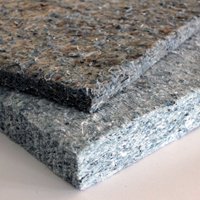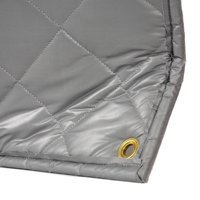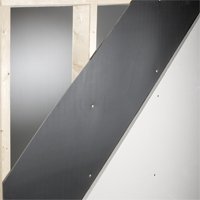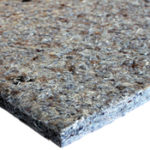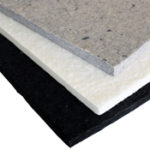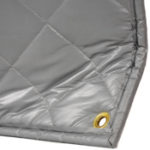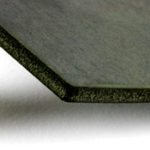
Refrigerators run around the clock to keep food and beverages cold. This appliance lives in the heart of your home, so there’s a chance you’ll hear the compressor kick on throughout the day. This can get annoying when you’re trying to work, enjoy time with family or go to bed early. However, there are a few tricks that may fix the situation.
Why Is My Fridge Making Noise?
Your refrigerator’s compressor is responsible for circulating the flow of refrigerant. The attachment increases pressure around the liquid refrigerant so that it can reach all parts of the system. A refrigerator’s compressor will start up when inside temperatures rise above selected settings.
Compressors make noise because assemblies consist of a motor and pump. If your refrigerator suddenly gets loud, the appliance may be experiencing an issue with a condenser fan or evaporator motor. It is best to hire a professional to inspect your refrigerator, as a repair could be in order.
Types of Noises Refrigerators Make
Along with the usual compressor noises, there are other sounds your refrigerator could make. Most of the time, these noises are insignificant and don’t require any investigation or correction. Examples of these harmless sounds include:
- Sizzling: Sometimes, you may hear some sizzling sounds from your fridge. This noise usually indicates that water is dripping on the defrost heater and is nothing to worry about.
- Soft popping or cracking noises: Internal fridge parts adjust to temperature changes through expansion and contraction, which could lead to you hearing occasional popping or cracking noises. These small adjustments are normal, so you don’t have to be concerned about them.
- A mild hum: The most common sound you’ll hear from the fridge is the quiet hum from the compressor. It means your fridge is working properly. However, if the humming gets loud enough that you can hear it from other rooms, it could indicate that something is wrong with the compressor.
A noisy refrigerator isn’t always a nonissue — there are some sounds you should investigate promptly if you hear them coming from your fridge:
- Grinding, knocking or scraping: If you hear any of these three sounds, it could be a sign something is wrong with the fans for the fridge’s condenser or the evaporator located in the freezer. In many cases, these noises indicate that something is obstructing the fans and preventing them from operating correctly.
As noted above, a soft hum from the compressor is normal. For that reason, you’ll also want to inspect your refrigerator if it goes silent — the compressor may have stopped working correctly.
How to Quiet A Noisy Refrigerator Compressor
Once you know your refrigerator is in operating condition, here’s how to quiet a noisy refrigerator compressor:
1. Level the Refrigerator
One of the most common sources of refrigerator noise is uneven legs. In addition to soundproofing treatments, adjusting the base of the refrigerator will help with loud sounds. Ensuring bottom surfaces are lifted from the floor will result in fewer vibrations throughout the kitchen. You can also put a mat under your fridge to prevent noise.
You can also put a mat under your fridge to prevent noise. Pads that soak up vibrations help reduce sound while keeping your fridge stable.
2. Soundproof the Area Around the Refrigerator
Placing acoustic treatments on walls around a refrigerator can reduce its noisiness in large and small spaces. Whether your refrigerator fits inside an alcove or is positioned against countertops, soundproofing products like Echo Absorber™ Acoustic Cotton materials can make a huge difference.
Echo Absorber™ Acoustic Cotton from Soundproof Cow can be cut to size for diverse applications. These solutions absorb low, middle and high-pitch frequencies, giving you peace of mind, and you can remove the 80% recycled cotton materials as needed. Echo Absorber™ products are ideal for refrigerators since they resist the growth of mold, mildew and fungi.
Shop Echo Absorber™ Acoustic Cotton
3. Hang a Temporary Sound Barrier
Trying to watch a movie or head into the home office? Temporary sound barriers give you the flexibility to soundproof rooms based on circumstance. When a noisy refrigerator compressor causes problems for your routine, Soundproof Cow’s Quiet Barrier® Acoustic Quilts do the trick. Place the blankets in front of doorways or along the floor to reduce the sound of the compressor from one room to another.
Our sound barriers are available in various dimensions, including 2 feet by 4 feet and 4 feet by 8 feet. These acoustic solutions work great for rental apartments where you’re unable to change the insulation or flooring throughout the building.
Shop Quiet Barrier® acoustic quilts
4. Move It Into an Alcove
If your kitchen has an alcove — a small recessed part of a room — and your refrigerator isn’t already there, consider moving it into that space. The alcove will reduce the noise coming from the back of your fridge because there is limited space for the sound waves to bounce back and forth. To further soften the noise from your fridge’s compressor, you can add soundproof material to the surrounding walls to help dampen it.
5. Install Mass Loaded Vinyl (MLV) Sound Barriers
Another material you can use to lessen the sound of your noisy refrigerator is mass loaded vinyl. This thin yet heavy-duty material is highly flexible and makes an excellent soundproofing layer that helps control vibration and dissipate sound waves more evenly. While MLV doesn’t have typical absorption capabilities, it does dampen noise by either containing or blocking sound waves. For example, if you install MLV on the walls of the nook where your fridge sits, the MLV barrier will ensure the compressor sounds stay within that space.
Shop Mass Loaded Vinyl Barriers
6. Add Rubber to the Compressor Motor
If you or someone you know can add rubber grommets to a refrigerator’s compressor motor, you have another chance at reducing the noise level from your fridge. Installing rubber grommets helps minimize the sounds coming from the compressor by absorbing vibrations and blocking noise.
Another possible solution to reduce the noise is to install MLV around the motor. Its thinness and robust sound-deadening features make it ideal for those who want to use a more advanced technique.
Use Soundproof Cow Products for a Noisy Fridge Compressor
Soundproof Cow wants to be your go-to source for residential and commercial acoustic solutions. We shoot for 100% customer satisfaction from the moment you place your order to delivery. Purchase our “udderly” fantastic soundproofing products for your home or contact us for help with your selections today!



